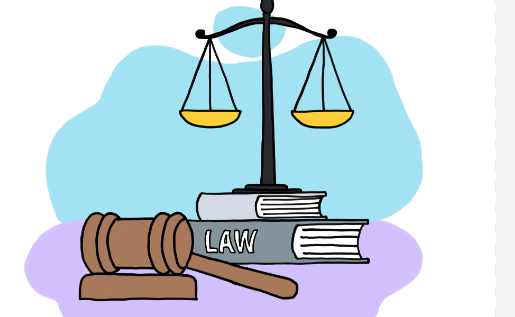Sure, here are nine skills that are crucial for a successful lawyer, along with tips to improve them: Legal Research and Analysis: Tip: Practice using legal databases effectively. Familiarize yourself with various search techniques and resources available. Communication Skills: Tip: Work on both written and oral communication. Practice drafting clear and concise legal documents and arguments. Develop strong presentation and negotiation skills. Critical Thinking: Tip: Cultivate analytical thinking by examining legal issues from multiple
angles. Practice identifying key issues, reasoning logically, and evaluating arguments. Attention to Detail: Tip: Develop strategies to avoid errors. Double-check all documents for accuracy and consistency. Create checklists to ensure nothing is overlooked. Time Management: Tip: Prioritize tasks and set realistic deadlines. Break down large projects into smaller, manageable tasks. Use time-tracking tools to monitor productivity. Client Counseling: Tip: Develop empathy and active listening skills. Communicate clearly and honestly with clients, explaining legal options and potential outcomes in layman’s terms. Negotiation Skills: Tip: Learn
effective negotiation techniques such as active listening, building rapport, and creative problem-solving. Practice negotiating with colleagues and clients. Ethical Judgment: Tip: Stay informed about ethical guidelines and professional standards. Seek guidance from mentors or ethical committees when faced with difficult decisions. Resilience and Stress Management: Tip: Develop coping strategies to manage stress and maintain work-life balance. Practice mindfulness, exercise regularly, and seek support from colleagues or professional networks. Improving these skills takes time and dedication, but consistently practicing and seeking feedback can help you become a more successful lawyer.
Top 10 Benefits of Becoming a Lawyer and How Much it Costs
Becoming a lawyer can be a rewarding career choice for many individuals, offering a variety of benefits. Here are the top 10 benefits of becoming a lawyer, along with information on the costs associated with pursuing a legal education: Benefits of Becoming a Lawyer: Intellectual Challenge: Lawyers engage in complex problem-solving and critical thinking on a daily basis, which can be intellectually stimulating. Financial Reward: Lawyers often command high salaries, especially in certain specialties or at prestigious firms. Career Opportunities: A law degree opens doors to various career paths, including private practice, government positions, corporate roles, academia, and non-profit work. Advocacy: Lawyers have the opportunity to advocate for justice,
fairness, and the rights of individuals or groups. Prestige and Respect: The legal profession is often highly respected in society, and lawyers may enjoy a certain level of prestige and influence. Variety of Work: Lawyers can work on a wide range of cases and projects, ensuring that no two days are exactly alike. Skill Development: Lawyers develop valuable skills such as negotiation, communication, research, and analysis, which are transferable to many other professions. Networking Opportunities: Lawyers frequently interact with other professionals, including judges, politicians, business leaders, and fellow attorneys, which can lead to valuable connections. Potential for Impact: Lawyers have the ability to make a significant impact on individuals, communities, and society as a whole through their work. Lifelong Learning: The law is constantly evolving, providing ongoing opportunities for lawyers to continue learning and growing throughout their
careers. Cost of Becoming a Lawyer: The cost of becoming a lawyer can vary depending on factors such as the type of law school attended, whether the student chooses to pursue additional degrees or certifications, and living expenses during law school. Here are some typical costs associated with becoming a lawyer: Undergraduate Education: Before attending law school, aspiring lawyers must typically complete a bachelor’s degree. The cost of undergraduate education can vary widely depending on the institution and whether the student attends in-state or out-of-state. Law School Tuition: Law school tuition can be expensive, especially at top-ranked schools. According to data from the American Bar Association, the average annual tuition and fees at private law schools exceeded $49,000 in the 2020-2021 academic year. Books and Supplies: In addition to
tuition, law students must purchase books, study materials, and other supplies, which can add up to several thousand dollars per year. Housing and Living Expenses: Law students also need to budget for housing, food, transportation, and other living expenses during their time in school. Bar Exam Fees: After graduating from law school, aspiring lawyers must pass the bar exam in their jurisdiction in order to practice law. Bar exam fees vary by state but can range from several hundred to several thousand dollars. Bar Review Course: Many law graduates choose to enroll in a bar review course to help prepare for the exam. These courses can cost upwards of $3,000. Student Loans: Many law students rely on student loans to finance their education.
According to data from the ABA, the average law school graduate in the class of 2019 had over $145,000 in student loan debt. Overall, the cost of becoming a lawyer can be substantial, but for many individuals, the potential benefits outweigh the financial investment. Additionally, there are scholarships, grants, and other financial aid options available to help offset the cost of legal education for those who qualify.






